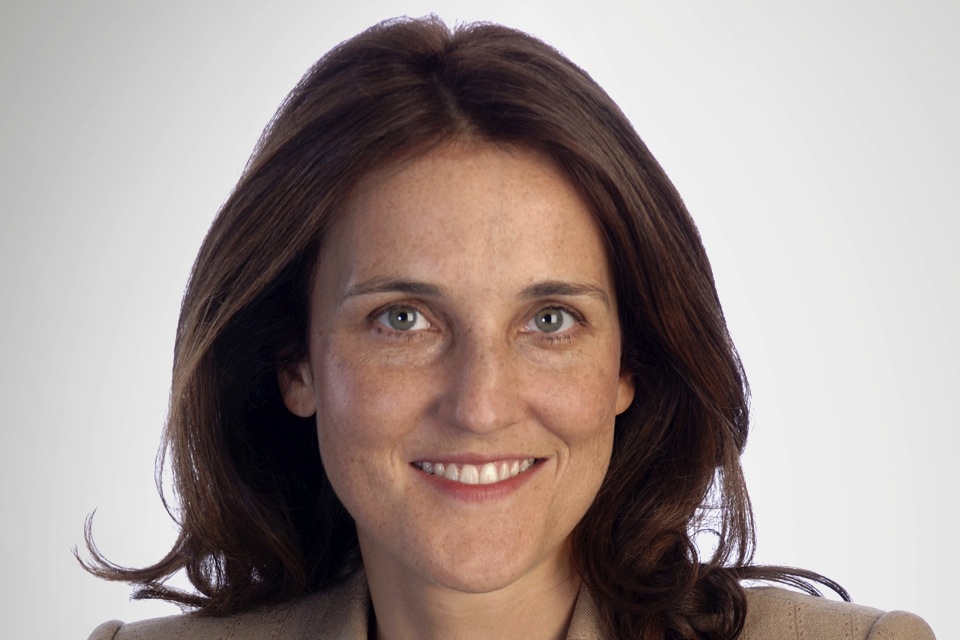Theresa Villiers' statement to Parliament on the Haass talks
The Secretary of State talks about the current situation on the Haass talks

With permission I would like to make a statement about the cross-party negotiations in Belfast that came to a close during the early hours of New Years Eve.
But I would first like to express my sorrow about the news that Paul Goggins has died.
He was an excellent Northern Ireland minister and one of the kindest, most sincere and most popular members of this House.
He will be much missed and I would like to take this opportunity to express my sympathy and support to his family as they deal with this shocking loss.
Last May, the First and deputy First Ministers announced a working group consisting of representatives from each of the five parties in the Executive to look at three of the most divisive issues for Northern Ireland …
…. flags, parading and the past.
The initiative formed a key element of wider proposals to tackle sectarianism set out in the Executive’s strategy Together Building a United Community’.
In July, former US diplomat, Richard Haass, agreed to chair the group.
Dr Haass served as the US special envoy to Northern Ireland from 2001-2003.
Along with his deputy, Professor Meghan O’Sullivan, Dr Haass began work in September with the aim of reaching agreement by the end of the year.
From the outset, the UK Government … along with the Irish government and the United States administration … has strongly supported the Haass process.
We welcomed the fact that it was the parties within Northern Ireland that had taken the initiative in seeking progress on these complex and difficult issues as part of the work the Government has strongly pressed them to take forward on building a shared society in Northern Ireland and addressing sectarian division.
All three of the issues under consideration in the Haass group have the capacity sharply to divide opinion in Northern Ireland.
Repeated attempts to deal with the past had produced little consensus … while disputes over parading and flags have frequently led to serious public disorder.
So some form of accommodation on these issues that commands cross party support could have significant benefits for political stability, public order and economic prosperity.
And while the UK Government was never formally a participant in the Haass process, we have been fully engaged with it from the start.
I had a number of meetings with Dr Haass … while my officials remained in frequent contact with his team.
During the latter stages of the talks I spoke regularly to Dr Haass … as I did with the leaders of the Northern Ireland political parties and the Irish Foreign Minister, Eamon Gilmore.
The Prime Minister also maintained a close interest in the process.
We worked to encourage an agreement … even where that meant the parties taking difficult decisions to try and move things forward.
The Haass process reached its final, intensive phase of negotiation in the days before Christmas and between Christmas and New Year … when a number of drafts were circulated, the final one on being presented to the parties shortly after midnight in the early hours of 31 December.
This proposed a new set of arrangements for regulating parades and protests … with responsibility vested for the first time in devolved hands.
On flags and emblems there was no immediate resolution but the document advocated the establishment of a new commission to look at wider issues of identity, culture and tradition in Northern Ireland.
And on the past Dr Haass proposes two new bodies … a Historical Investigations Unit in place of the PSNI’s Historical Enquiries Team to investigate troubles related deaths … and an Independent Commission on Information Recovery.
It was disappointing that it didn’t prove possible to reach a comprehensive agreement within the timetable set by Dr Haass.
And its clear that some of the parties have genuine concerns about aspects of what is in the final document.
Yet the clear message from the Prime Minister, from me and from the Irish Government is that this should not be seen as the end of the road.
The Haass process has seen much valuable work done and some real progress has been made.
The discussions did manage to achieve a considerable amount of common ground which the Government believes can provide the basis for continuing discussions between the parties.
From my many conversations with the parties I have no doubt that there is a willingness to make progress on these issues that continue to be a focus for tension and division across the community.
The momentum needs to be maintained.
I believe that Northern Ireland’s political leadership should lose no time in seeking a way forward that gets the parties back round the table to try to resolve outstanding differences betweem them.
For our part the Government is continuing our dialogue with the parties … and with the Irish Government … to see how best we can help facilitate that.
I firmly believe that there is still a chance to achieve a successful outcome from the work started by Dr Haass … and I have been speaking to party leaders to discuss next steps.
At the same time it is important that we do not lose sight of other important issues for Northern Ireland …
… the need to continue making progress on implementing our economic pact … taking forward a range of measures to build a shared future … and moving ahead with welfare reforms.
Finally I would like to place on the record both the Prime Minister’s and my thanks to Dr Haass, Professor O’Sullivan and their team for the dedication they have brought to chairing these talks.
And I very much hope that working together we can now build on the valuable work which they’ve done.